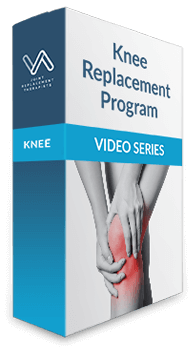Can You Run After Having a Joint Replacement?
share this article
Traditional thinking is to avoid running after joint replacement to avoid unnecessary risks. However, as surgical techniques and materials continue to improve, younger individuals are having joint replacement surgery and want to continue the active lifestyles they had before surgery. Running and high-impact activity after having a knee or hip replacement is a relatively new consideration, and because of this, research on the topic is minimal. Additionally, the few studies there are have conflicting results. Let’s look a little deeper at both sides of the debate.
Many surgeons and physical therapists do not recommend running after knee or hip replacement surgery. They argue that running and other high-impact activities place greater stress on the prosthetic joint. These increased stresses can lead to fracture, wearing down of the prosthesis, loosening of the joint, and an increased possibility of needing revision surgery.

One study from 2012 supports the possibility of these increased risks. It compared 70 individuals who participated in high-impact sports, such as running, and 140 individuals that stuck to just low-impact activities after hip replacement surgery. At 10 years after surgery, they found in the high-impact group there was greater wearing of the implant, greater revision rates, and increased risk of mechanical failure. Interestingly, the high-impact group did show better scores on functional outcome measures, suggesting a possible trade-off of feeling better overall, but having a greater risk of revision surgery.
On the other hand, some argue that high-impact activities, such as running, are beneficial after joint replacement. A major cause of prosthesis loosening is bone loss with aging, known as osteoporosis. The best way to promote bone growth is through weight bearing and resistance exercises. Additionally, running and exercise provides improved muscle strength, decreasing the stresses through the joint.
Some studies found no increased risk with running or high-impact sports. One study looked at 23 patients who returned to jogging after hip replacement. At 5 years after surgery, there was no loosening, abnormal component migration, or excessive wear. Although the sample was small, the authors concluded that jogging did not appear to have any short-term (5 years) negative impact after hip replacement surgery.
Another study presented in 2010 at the American Academy of Orthopedic Surgeons compared patients who participated in heavy manual labor or sports after knee replacement to patients who followed recommended low-impact activity guidelines. They found no significant differences in radiographic findings or implant durability. After accounting for different variables, the researchers concluded that the “sports group” had a 10% increased risk of implant mechanical failure compared to the control group. This small increased risk was not statistically significant.
A 2010 systematic review noted that research shows contradictory results and it is inconclusive if high-impact activity leads to increased risk of future revision surgery. The study did note that the current trend is towards more liberal opinions regarding high-impact running and exercises after knee and hip replacement surgery. The authors also noted the availability of alternative treatments such as partial joint replacements and hip resurfacing techniques (capping the head of the femur, or thigh bone, with metal instead of removing it).
In the end, the decision to try running after joint replacement surgery is a decision that must be made on a person by person basis. If you do decide to try running, here are some tips to help decrease risks:
- Manage your weight to decrease stress through the joints
- Don’t start running until after many weeks of postoperative rehab
- Start with walk-run-walk program
- Only try running if you have some experience with running before your surgery
- Have a therapist or other professional analyze your running mechanics
- Have regular x-rays of the joint to assess any wear or loosening
- Run on soft even surfaces and avoid sharp turns
- Wear good sneakers with good shock absorption
- Incorporate other low-impact activities such as cycling or swimming
Sources
- Abe, Hirohito, et al. “Jogging after total hip arthroplasty.” The American journal of sports medicine 42.1 (2014): 131-137.
- Ollivier, Matthieu, et al. “Does impact sport activity influence total hip arthroplasty durability?.” Clinical Orthopaedics and Related Research® 470.11 (2012): 3060-3066.
- “A Sporting Chance For Active Total Knee Replacement Patients” American Academy of Orthopedic Surgeons. 2010. http://www.aaos-annualmeeting-presskit.org/2010/clinicalpressreleases/Clinical_5.html
- Vogel, Laura A., et al. “Physical activity after total joint arthroplasty.” Sports health 3.5 (2011): 441-450.
share this article
Subscribe to our newsletter
Join our mailing list to receive the latest news and updates from the Knee Replacement Therapists. Also, for a limited time, receive a free article from The Knee Replacement Therapists describing why your x-rays may not be giving you the whole story.
Free Preview
Click here for a free preview of some of the content found in our video Programs
Knee to Know Show
Click here to checkout our popular vlog with videos on a variety of topics related to knee replacement surgery, knee pain and arthritis, and helpful exercises and activities.
Ready to get started?
Browse our programs, or purchase now.




